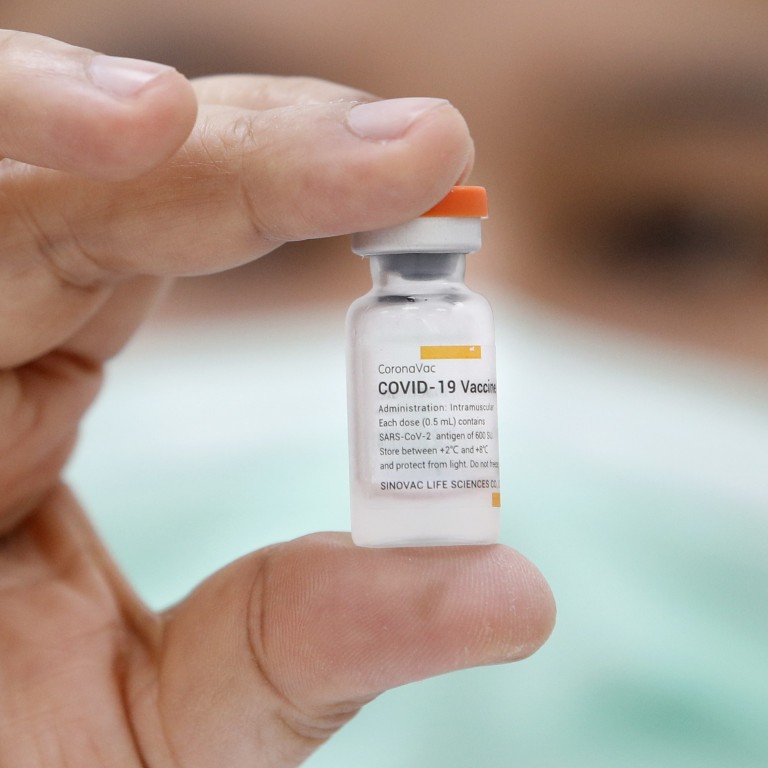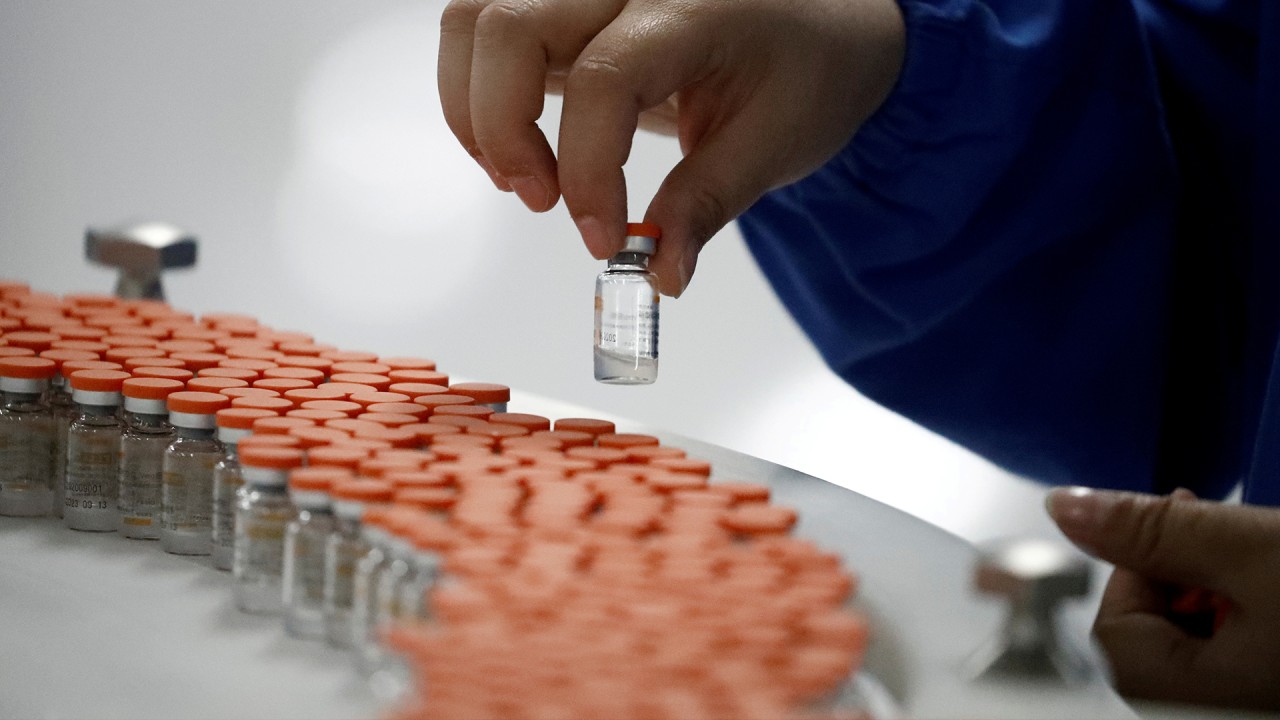
Chinese vaccine developer Sinovac calls for concerted global effort to deal with future pandemics
- The world must learn from the Covid-19 pandemic and ensure efforts are coordinated from the start to nip any outbreak in the bud, Sinovac’s Yin Weidong says
- Early investment in development and manufacturing of a new vaccine is the best tool to tackle a severe disease outbreak, Yin says
Coordination among global regulators, pharmaceutical firms and investors must be strengthened to accelerate development of vaccines to prevent another potential pandemic like Covid-19 ravaging the world, the CEO of Chinese vaccine developer Sinovac Biotech said.
Beijing-based Sinovac was among the first three Chinese pharmaceutical companies whose vaccines were approved by mainland regulators to offer protection against Covid-19, the respiratory disease caused by the coronavirus that originated in Wuhan, central China’s Hubei province in December 2019. Since being declared a global pandemic by the World Health Organization in March last year, the virus has infected more than 127 million people worldwide and claimed nearly 2.8 million lives.

Sinovac’s CoronaVac was developed using traditional technology. The inactivated virus vaccine showed an efficacy rate of 83.5 per cent in a phase three trial in Turkey, while in Brazil the rate was just above 50 per cent.
He said the trial showed that the vaccine offered 100 per cent protection against death, severe illness and hospital admission, and the protection rate was around 80 per cent against milder cases requiring medical treatment.
“Early investment in development and manufacturing of a new vaccine is the best tool to hedge against the uncertainty of a severe disease outbreak,” Yin said, adding that China’s overall industrial strength enabled Sinovac to ramp up production of CoronaVac vaccines.
He said the company was on track to produce 2 billion doses by June. Sinovac is one of the suppliers to Hong Kong, where nearly 440,000 people or nearly 6 per cent of the population has received at least one dose of the vaccine from one of two suppliers that includes Pfizer-BioNTech.
Yin said that the pandemic pushed pharmaceutical companies to develop vaccines using mRNA technology that had never been used before.
“The US and European countries showed higher risk tolerance level than normal in developing the advanced technology,” said Yin. “I think it proved that new technologies, though carrying high risks, should be prioritised [when there’s a health crisis].”
Unlike typical vaccines which use either dead or weakened form of virus to jump-start the body’s natural defences, mRNA vaccine relies on cells to produce proteins to fight the virus.
Two mRNA vaccines, one developed by the US-German team of Pfizer-BioNTech, and the other by US firm Moderna, are being used extensively in Europe and the US.
Gao Jianchao, an official with China’s Centre for Drug Evaluation, told the conference that Beijing was determined to deepen reforms on drug approval mechanism.
“Openness, fairness and justice are the principles to be implemented while development and innovations on new medicines are encouraged,” he said.


